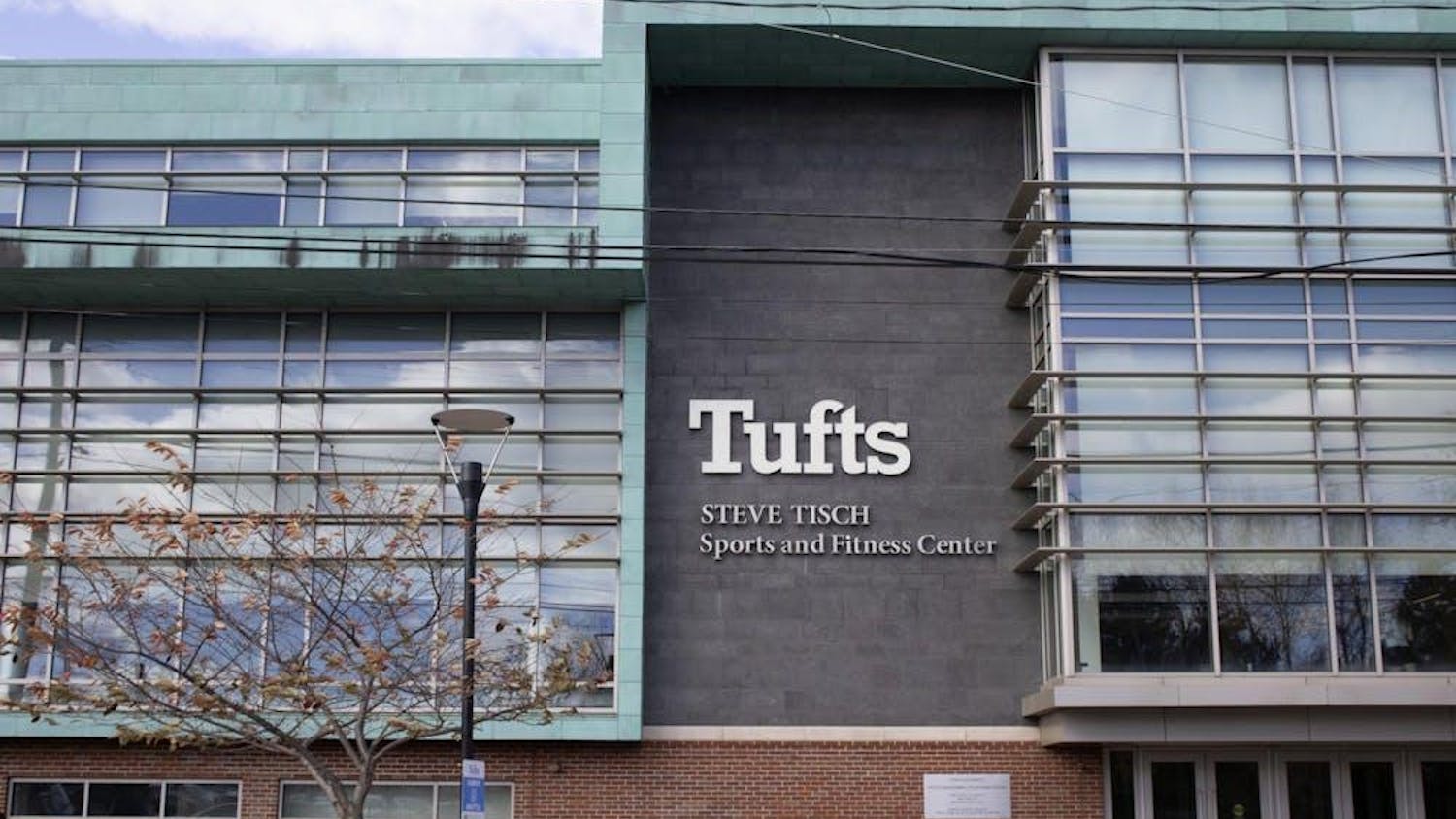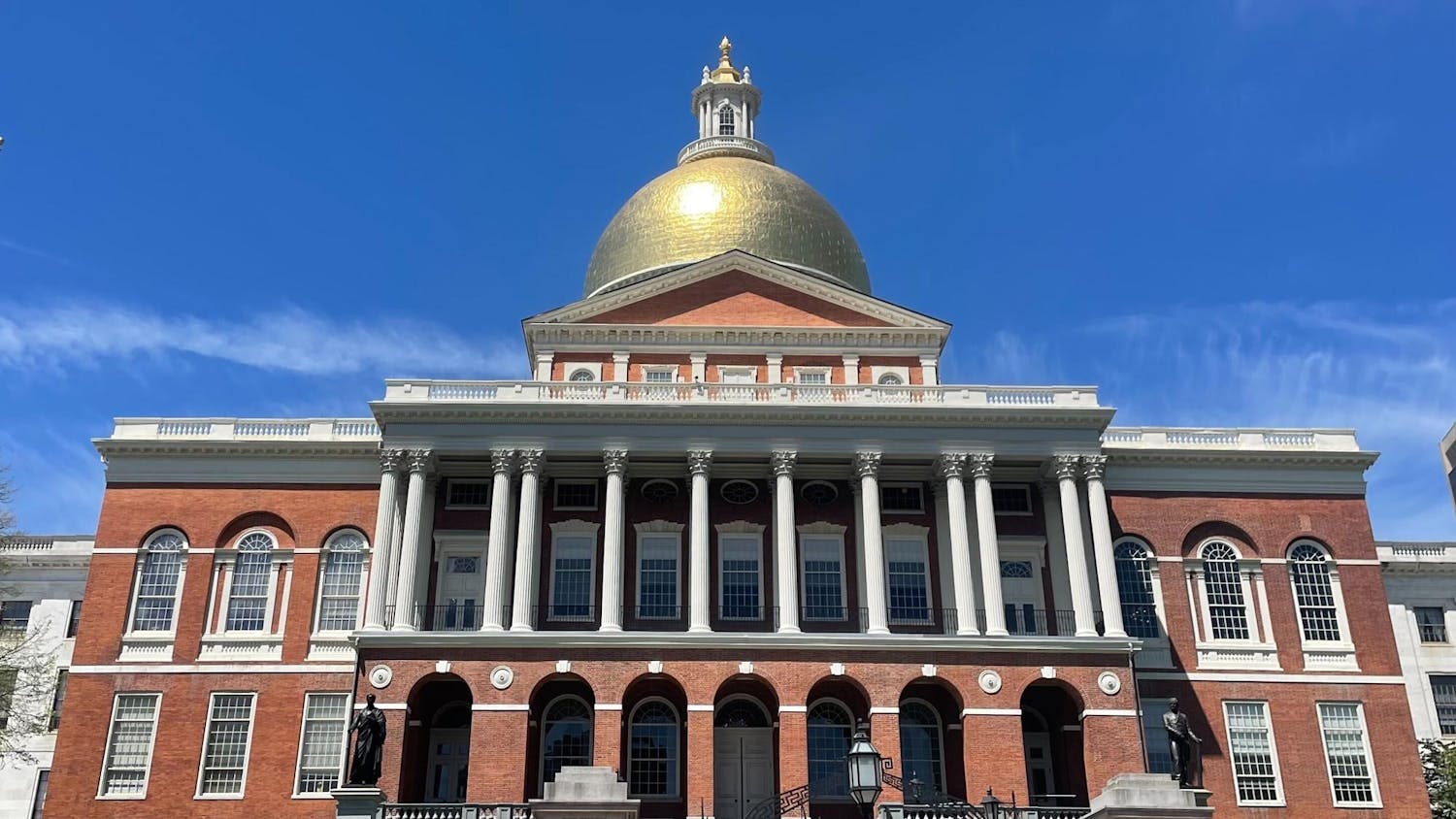The inherent worth and dignity of every person. Justice, equality and compassion in human relations. Acceptance of one another and encouragement to spiritual growth.
There's not much to argue with there. Those first three of the seven principles of Unitarian Universalism are written on a card sitting at the table at the meeting of Tufts Unitarian Universalists (TU3) — and, the way the groups' members see it, meet every expectation of life at Tufts.
"[The principles are] sort of like a guiding statement of Unitarian Universalist thought," TU3 President Duncan MacLaury, a junior, says. "I try to — maybe not always consciously think about them — but whenever I'm interacting with people, they come to the forefront of my mind and they're very much part of my psyche and how I think about and view the world."
The Unitarian Universalist movement, which began in its current form in 1961 when the American Unitarian Association merged with the Universalist Church of America, is characterized by a liberal slant and a commitment to searching for the truth without any single creed or group of requirements.
Nationally, 1,051 self−governing Unitarian Universalist congregations boast 225,000 members.
For those who wish to bring their Unitarian Universalist faith to campus, or take it up as a new approach to worship, the first step for most is into TU3 — pronounced, as, the group's president is quick to point out, "Tee−youcubed."
"We've recently made an executive decision to change how we pronounce out acronym," MacLaury explained. Freshman Christine Gregory, a TU3 member, sounded it out. "T. U. Cubed — it just sounds better."
No matter what you call it, Unitarian Universalism is truly all−encompassing.
"I think one of the strengths of this group is … people coming with such different perspectives and different life experiences within a Unitarian Universalist idea," Wyatt Cadley, a junior, said. "[You have] people who relate as atheist and don't believe in God, [and] you have people who also are very involved in the Jewish faith as well. I see myself falling in sort of a more Christian ideology, but it doesn't change the fact that we can still come together and have a conversation."
Cadley said he participated in the faith as a child, and then he took the practice of Unitarian Universalism back up at Tufts after it had fallen by the wayside for several years. "[TU3] was really great in how I've chosen to get back involved," he said.
"It doesn't matter if you've been going to Unitarian churches your entire life or if this is something you're just picking up again," Cadley added. "There's still that level of openness and acceptance."
While some practicing Unitarians, including the occasional Jumbo, follow the typically Protestant structure of Sunday worship in a church, TU3 operates more in the vein of a youth group, meeting weekly in the basement of the Interfaith Center on Wednesday nights. They let the teachings of the larger Unitarian Universalist community guide their discussion, but the students see it more as a place to explore, learn and ask for advice.
MacLaury said that while there is no defined structure for Unitarian Universalist worship, TU3's meeting format doesn't necessarily reflect the style followed by all Unitarian Universalists, including those at Tufts.
"There are people who do look for the direct worship aspect of having a service, having a minister," he said. "That's not what we provide, of course, but I think that is a large part of Unitarian Universalism for a lot of people." This is true of his religious upbringing in Unitarian Universalism, he said, but like with all things in the faith, one characterization is hard to find.
"[It] differs entirely depending on which churches you go, [even] those that are right in the same town," MacLaury continued. "Unitarian Universalism is a lot based on what the community … wants out of it. That idea of having a ritual space is very important to some people."
Gregory said the meetings can be therapeutic. She was born into a Unitarian Universalist family and has continued to attend meetings with TU3 since coming to the Hill.
"I use youth group at home, and here, as a place where you can bounce ideas off of [everyone]. Because nobody's going to be like ‘you're wrong,' it's somewhere where you can have a discussion about it, and it's very open." Gregory said TU3 was an integral part of adjusting to her new hectic life after arriving on the Hill this year.
"Coming here was kind of hectic at first," she said. "For the first couple of weeks I really didn't spend a lot of... alone time with me and my thoughts. It was more like, ‘I have classes and I have all this stuff I have to get done,' and so I realized that this is sort of a place for me to [detoxify]. It's chill, relaxed. We socialize but we also talk about bigger things."
Lauren Schenker, a sophomore and another TU3 member, agreed.
"We have a box here that we use where people can anonymously put questions about faith in, and then as a group we go around and just discuss." She said among the religious movement's beliefs, she most appreciated the openness allowed by the format.
"It's nice for people to be so accepting and to offer their opinions, and it just gives you a whole new perspective on what could be out there," she explained.
Because of the wide, even universal, range of faiths and creeds that Unitarian Universalism embraces, the members of TU3 don't look to just one adviser when it comes to seeking religious guidance.
"Technically, [Unitarian Universalist Church of Medford Reverend Hank Pierce] is our faculty adviser, but he's not affiliated with Tufts other than being the Unitarian Universalism … adviser." On campus, TU3 members can take advantage of any of the religious advisers working for the university chaplaincy.
"I'm also part of the Protestant group here on campus," Schenker explained. "Both of my religions reconcile pretty well, so I see [Protestant Chaplain Rachael Pettengill] for those other spiritual needs as well."
"She's able to provide if we wanted a similar thought process, though really any of the chaplains are able to do that based on where we come from," MacLaury said. TU3, he said, is less dependent on the chaplaincy for logistical support. "There's a support system, but we historically haven't used it as much as other groups have because we don't have Sunday worships so we don't use the chapel [or other things like that]."
The small group reflects the large Unitarian Universalist community in that, while they come from differing backgrounds, they can agree on the importance of unquestioningly welcoming the views and religious searches of others.
"I always feel at home, no matter if its people I've known for a really long time or it's people I'm just meeting," Gregory said. "Something about being a Unitarian Universalist makes you be like ‘Aw, let's worship together, it's all cool.'"
"The best thing is sort of sharing in the process with the other people," Cadley said. "To me, that's something … It works for me."





